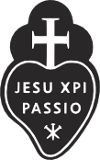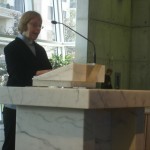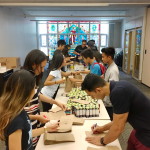I ask you to stretch your imagination as reflect on this parable of the Good Samaritan.
Can we stretch our imaginations and see the traveler on the road to Jericho as Mother Earth set upon by ruthless conglomerates who for the sake of profits, cut down Earth’s forests, poison Earth’s rivers and lake with spills of toxic wastes, pollute Earth’s air with toxic pollutants? These irresponsible actions have inflicted great wounds on Earth and on us.
Can we imagine the Good Samaritan in today’s gospel to be the good men and women, many of them scientists, environmentalists and conservationists, who are involved in efforts to help us face the reality and the consequences of the present precarious condition of Earth as we face the reality of climate change and global warming? Not just the reality but the consequences of this reality that will affect generations to come.
Are we willing to expand the horizons of our minds and see hugh corporations who exploit Earths’ resources and the scientist on their payroll who deny the present precariousness of Earth and we ourselves who are caught up in a mindset of consumerism and wastefulness as those in the parable who pass by and avoid wounded Earth, denying the reality staring us in the face, not wanting to get involved, not wanting to change our lifestyles, hoping someone else clean up the mess we’ve made?
Can we read the parable and hear it as a call to see human relationship with Earth in a new and life giving way? Can we get our heads around the truth that Earth is not a collection of objects but is a community of subjects? We humans are not lords of creation we are one with the rest of the life systems of Earth,the forests, the land, the seas, the insects, the animals, the birds, the fish – we are all one community of life.
You’ve heard me say this many times, Earth does not belong to us, we belong to Earth and what we do to Earth we do to ourselves – we did not weave the web of life, we belong to the web and what we do to the web we do to ourselves.
In May of 2015 Pope Francis wrote a letter to all people of good will. Its title is Laudato Si – the first words of St. Francis of Assisi’ canticle of praise – Praise be to you my Lord, through our Sister, Mother Earth, who sustains and governs us and who produces various fruit with colored flowers and herbs.
Pope Francis tells us that Mother Earth now cries out to us – as did the man who fell among robbers on the road to Jericho called out to those who passed him by – Mother Earth cries because of the harm we have inflicted on her by way of our irresponsible use and abuse of the goods with which God has endowed Earth. He goes on to say,’ we have come to see ourselves as Earth’s lords and masters, entitled to plunder her at will. The violence present in our hearts is reflected in the symptoms of sickness evident in the soil, in the water, in the air and in all forms of life including the human life.’ What we do to Earth we do to ourselves.
The deterioration of Earth eventually affects the poorest of the poor. Again quoting the Holy Father, ‘For example, the depletion of fishing reserves especially hurts small fishing communities without the means to replace those resources; water pollution particularly affects the poor who cannot buy bottled water; and rises in the sea level mainly affect impoverished coastal populations who have nowhere else to go. The impact of present imbalances is also seen in the premature death of many of the poor, in conflicts sparked by the shortage of resources, and in any number of other problems which are insufficiently represented on global agendas.’
Just for an example here in Ontario the effects of mercury poisoning of the waters at Grassy Narrows and the health of Native peoples living downstream from the oil sands projects are again in the news. I recently read about an 85 mile stretch between Baton Rouge, known as ‘cancer alley’. It is home to more than 150 oil refineries and scores of dirt poor residents with many inexplicable illnesses. A recent report claimed that 60% of ocean fish species are in danger of extinction. What we do Earth we do to ourselves.
Today’s parable came from the lawyer’s question, ‘who is my neighbour?’ We are neighbour; we are kin, to every being that lives on Mother Earth. We are our neighbour’s keeper just as they are ours. We did not weave the web of life; we are a strand in the web. Can we get our heads around this truth and honestly face our wasteful and consumer lifestyles and make a commitment to ‘live simply that others may simply live’?
Our Epistle tells us that Christ is the first born of all creation; in him all things hold together for all things have been created through him and for him. Can we stretch our imagination and see that Christ is crucified in our time by our destruction and diminishment of Earth? Something to think about.
 Founded by St. Paul of the Cross, every Passionist takes a special vow to spend his or her energies in promoting remembrance of the sufferings of Jesus, the memory of the Cross, and reflection of the meaning of the Cross for the world.
Founded by St. Paul of the Cross, every Passionist takes a special vow to spend his or her energies in promoting remembrance of the sufferings of Jesus, the memory of the Cross, and reflection of the meaning of the Cross for the world.




